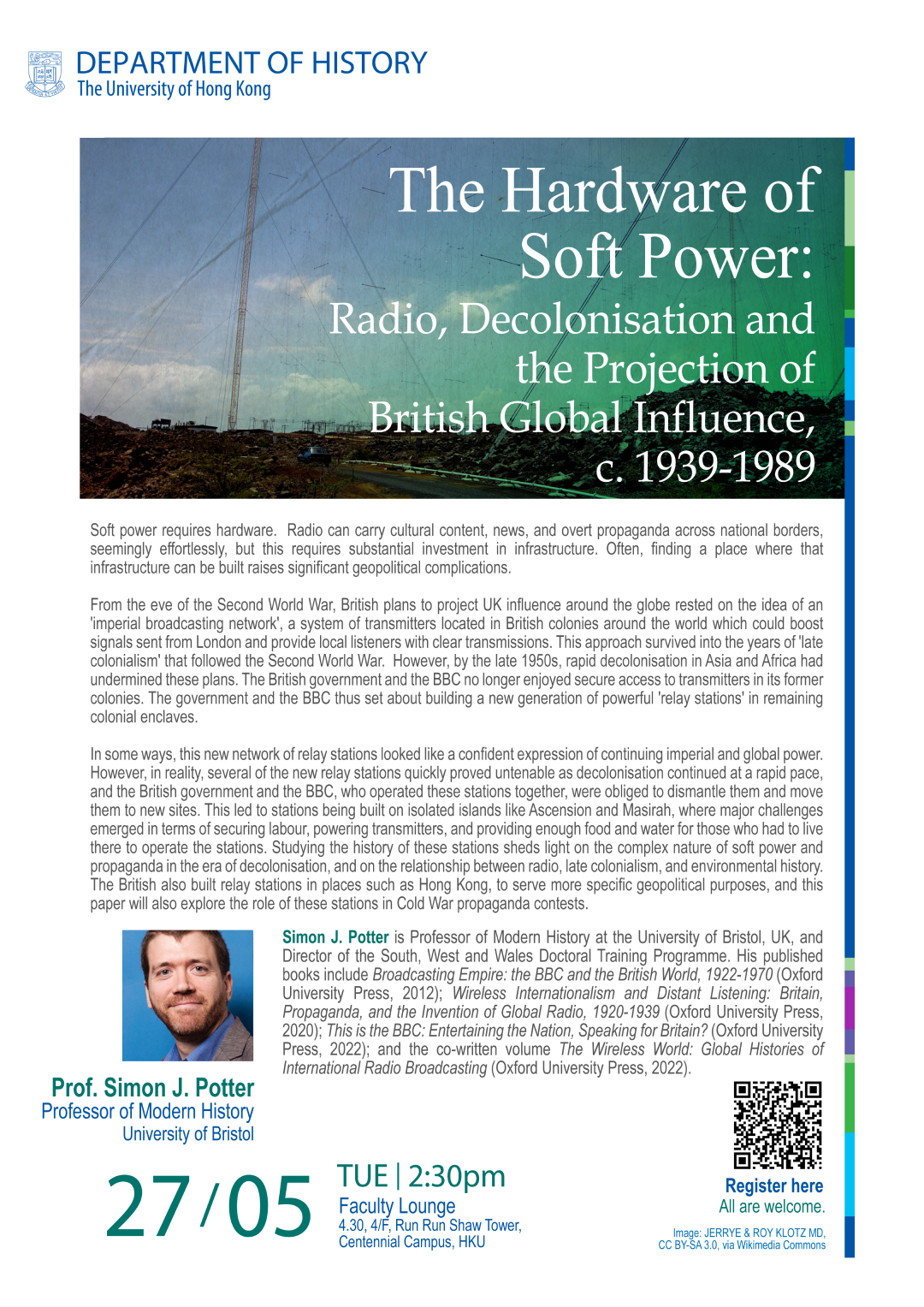
- This event has passed.
The Hardware of Soft Power: Radio, Decolonisation and the Projection of British Global Influence, c. 1939-1989 (Prof. Simon POTTER, University of Bristol)
May 27, 2025 @ 2:30 pm - 4:00 pm

Soft power requires hardware. Radio can carry cultural content, news, and overt propaganda across national borders, seemingly effortlessly, but this requires substantial investment in infrastructure. Often, finding a place where that infrastructure can be built raises significant geopolitical complications.
From the eve of the Second World War, British plans to project UK influence around the globe rested on the idea of an ‘imperial broadcasting network’, a system of transmitters located in British colonies around the world which could boost signals sent from London and provide local listeners with clear transmissions. This approach survived into the years of ‘late colonialism’ that followed the Second World War. However, by the late 1950s, rapid decolonisation in Asia and Africa had undermined these plans. The British government and the BBC no longer enjoyed secure access to transmitters in its former colonies. The government and the BBC thus set about building a new generation of powerful ‘relay stations’ in remaining colonial enclaves.
In some ways, this new network of relay stations looked like a confident expression of continuing imperial and global power. However, in reality, several of the new relay stations quickly proved untenable as decolonisation continued at a rapid pace, and the British government and the BBC, who operated these stations together, were obliged to dismantle them and move them to new sites. This led to stations being built on isolated islands like Ascension and Masirah, where major challenges emerged in terms of securing labour, powering transmitters, and providing enough food and water for those who had to live there to operate the stations. Studying the history of these stations sheds light on the complex nature of soft power and propaganda in the era of decolonisation, and on the relationship between radio, late colonialism, and environmental history. The British also built relay stations in places such as Hong Kong, to serve more specific geopolitical purposes, and this paper will also explore the role of these stations in Cold War propaganda contests.
Simon J. Potter is Professor of Modern History at the University of Bristol, UK, and Director of the South, West and Wales Doctoral Training Programme. His published books include Broadcasting Empire: the BBC and the British World, 1922-1970 (Oxford University Press, 2012); Wireless Internationalism and Distant Listening: Britain, Propaganda, and the Invention of Global Radio, 1920-1939 (Oxford University Press, 2020); This is the BBC: Entertaining the Nation, Speaking for Britain? (Oxford University Press, 2022); and the co-written volume The Wireless World: Global Histories of International Radio Broadcasting (Oxford University Press, 2022).
Register here: https://hkuems1.hku.hk/hkuems/ec_hdetail.aspx?guest=Y&ueid=100371
